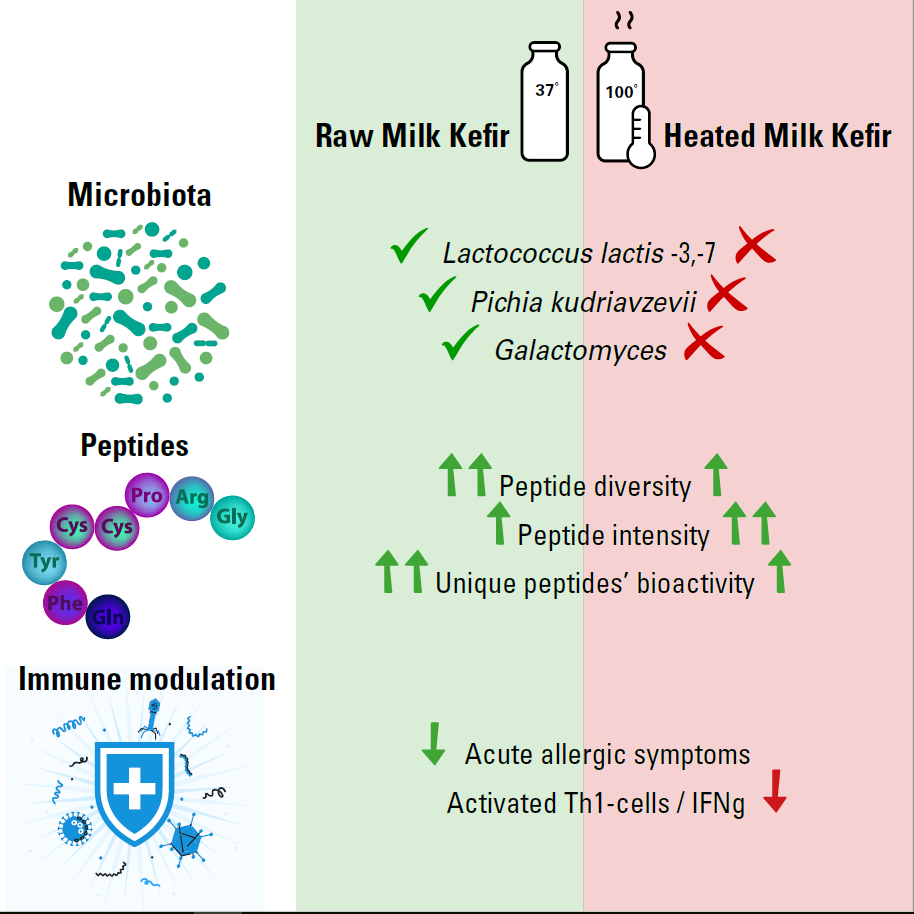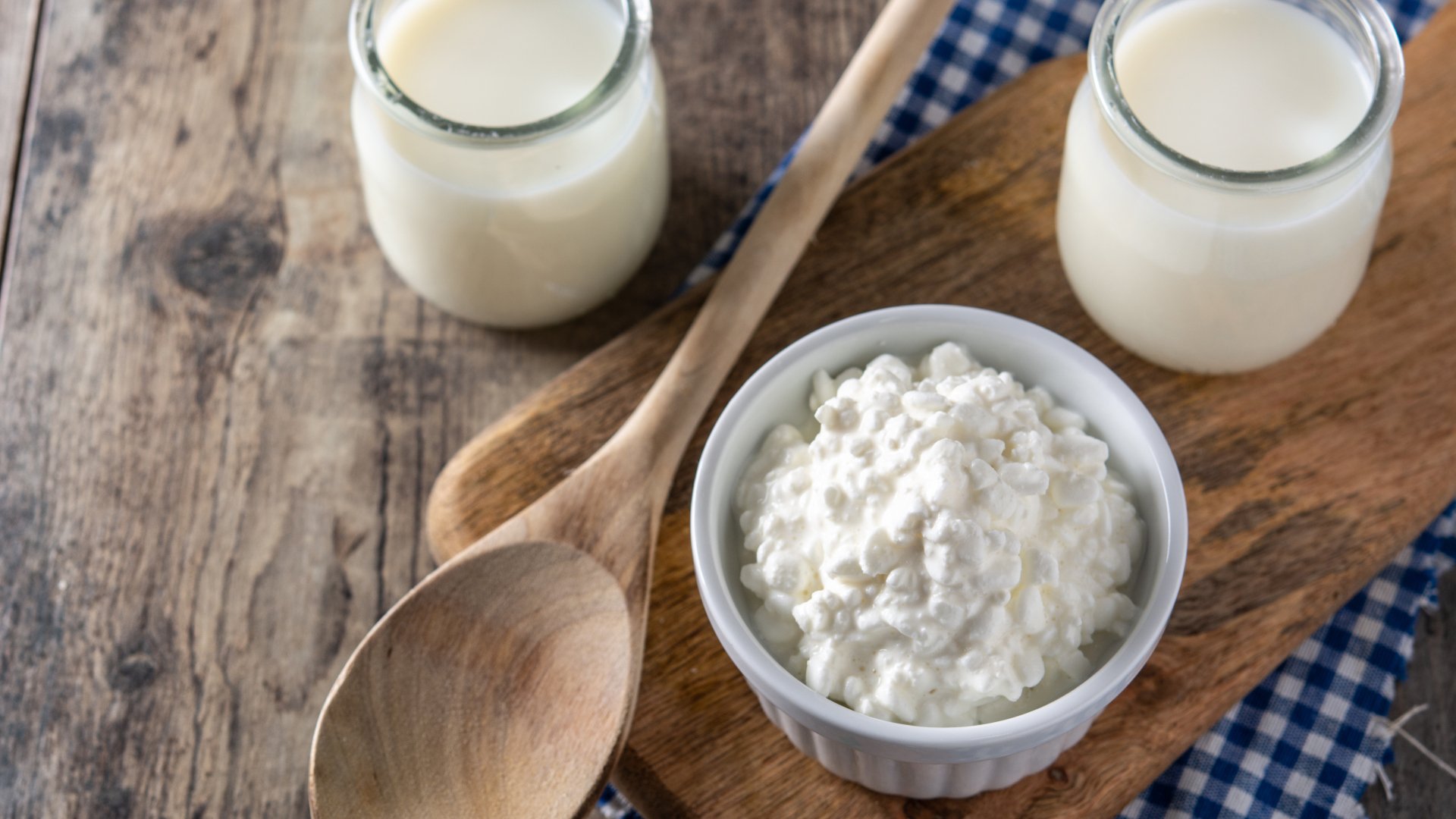Super drink
By adding a defined starter culture of five types of bacteria (Leuconostoc, Streptococcus thermophilus, Lactococcus lactis subsp. cremoris, L. lactis subsp. lactis, L. lactis biovar. Diacetylactis), and a type of yeast (Debaryomyces hansenii) - to milk, the fermentation process is started. The microbes in the culture convert milk sugar (lactose) from milk into lactic acid, carbon dioxide and alcohol, and break down the milk proteins into peptides.
Kefir has been around for thousands of years and originated in the Caucasus. The drink is known for the positive health effects it can bring. After all, the sour drink is full of probiotic microbes, bioactive peptides, fatty acids and vitamins. Kefir has a positive effect on the health of our gut microbiome. If your gut microbiome is out of balance, this puts you at a higher risk of certain diseases, such as asthma and allergies. A number of studies with mice and rats show that drinking kefir leads to lower inflammatory values in allergy and asthma. However, what was not yet known is whether kefir can also reduce food allergy symptoms.
Raw or pasteurized?
Kefir is generally made from pasteurized milk, although many recent studies show that raw milk has more health benefits. Asthma and allergies are much less common in children who drink raw milk. Milk contains heat-sensitive proteins that are destroyed by the heat treatment during pasteurization. So why not make kefir with raw milk? Micropia professor Remco Kort investigated this with a team of researchers from VU University Amsterdam, the University of Utrecht and Wageningen University.

Greater richness
Among other things, they discovered that many more types of microbes live in the raw milk kefir than are present in the starter culture. In addition, some of these bacterial and fungal species did not occur in the pasteurized milk kefir. In addition, raw milk kefir contains a greater variety of peptides and more bioactive peptides, which can have an antioxidant, antimicrobial and blood pressure lowering effect, among other things. This richness can possibly be explained by the greater diversity of microbes that all produce their own enzymes.
Decreased allergic reaction
After the composition the two types of kefir, the researchers also tested how kefir affects allergic reactions. Mice were given a substance that immediately caused an allergic reaction on their skin. But when mice were also given the raw milk kefir, they developed a less severe allergic reaction than untreated mice or mice treated with pasteurized milk kefir. The researchers draw the conclusion that heating the milk for fermentation has a negative influence on the protective effect of kefir.
These are promising results. Raw milk kefir is not only full of healthy microbes, proteins and vitamins, it also seems to have an allergy-suppressing effect. So it’s a real super food, and yet another argument to eat more natural and biodiverse!
James Lind Award
The research on raw milk kefir was made possible in part by the James Lind award that was awarded to ARTIS-Micropia in 2018 for research on probiotics.

